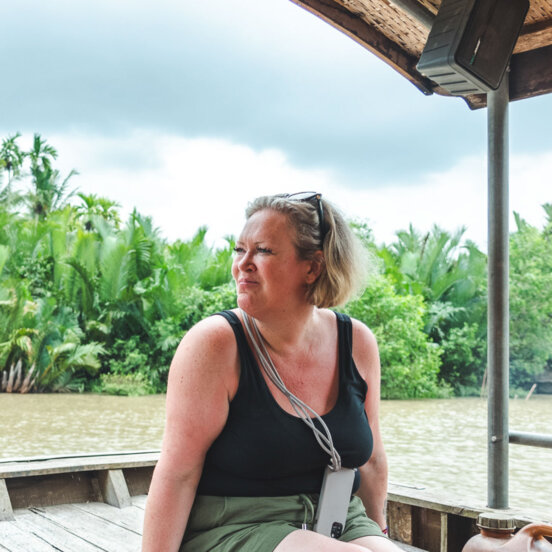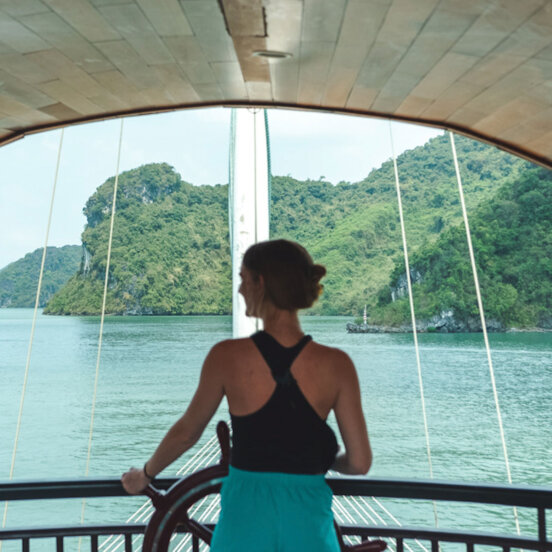Adventure doesn’t have to mean pain, punishment and peril. It can actually be quite fun…

Sitting on a deckchair at the edge of a remote Alaskan glacier last week, I had a revelation. As I tucked into a plate of delicious king salmon and accepted a refill on the glass of crisp white wine in my hand, that thought coagulated into this simple truism: adventure doesn’t have to be hard.
Let me put this into context. Earlier that day, I’d taken a seaplane from the town of Juneau, swooping low over a series of epic mountains and glaciers, as humpback whales frolicked in the waters below, before splashing down at remote Taku Glacier Lodge in the heart of bear country. By any standards, this was adventure travel. Yet, there I was, sitting in a comfy chair with a chef-prepared lunch in front of me and a chilled glass of Pinot Grigio waiting.

Adventure carries a subtext of pain, punishment and peril
Frustratingly, in common parlance, “adventure” continues to carry a subtext of pain, punishment and peril. Perhaps it’s a hangover from the Heroic Age of Antarctic Exploration, when adventurers like Scott, Amundsen and Shackleton really did suffer as they traveled. Or a legacy of decades of popular culture, where books, TV shows and films have repeatedly reinforced and exaggerated the bond between adventure and punishment. But isn’t it time we challenged this lazy stereotype?
As legendary explorer and climber, John Amatt, puts it: “Adventure isn’t hanging on a rope off the side of a mountain. Adventure is an attitude.” That attitude, he explains, is: “facing new challenges, seizing new opportunities, testing our resources against the unknown and, in the process, discovering our own unique potential.”

It doesn’t have to mean hardship and torment
In other words, adventure doesn’t have to include chewing locusts, wrestling alligators or BASE jumping. It simply has to involve leaving your comfort zone and getting out there. You can do that in any way you choose. There’s nothing in the small print that mentions hardship and torment along the way. There’s nothing that says it can’t be immensely enjoyable, too. The secret, experts say, is in focusing on adventure’s meaning.
“The human mind is a needs-meeting machine,” explains motivation expert and life coach, Phil Drinkwater. “Some of these needs are shared by everyone – like food, water and sleep. Other needs are more nuanced and present only in a section of the population. These come under a list of categories, including connection, play, peace and meaning. Within ‘meaning’ you’ll find needs – like discovery, self-expression, challenge, growth and stimulation – and that’s where adventure would typically exist for a person.”

Luxury and adventure needn’t be mutually exclusive
How that adventure looks is, therefore, up to you and the kind of discovery and stimulation you personally need. A camping trip to the Rockies, for example, could involve a portaledge on the side of a cliff, or a £3,000-a-night tented pavilion at Amangiri, Utah, depending on your personal meaning. I’ve done both on travel assignments recently, and the latter option definitely wins for me.
Luxury and adventure, you see, needn’t be mutually exclusive. In fact, there are plenty of occasions where taking the luxury option can actually increase the adventure level, like taking a vintage sidecar through the Moroccan desert or jetting off for some gourmet cave-dining in Argentina.

Adventure actually improves when shared
And, you can cast aside the notion of a lone explorer trudging through the wilderness, too. Because adventure not only improves when luxury is added; it improves when it’s shared.
As London-based psychologist Robert Stewart puts it, our ‘connect’ and ‘drive’ systems are closely linked – a phenomenon he compares to “happily sitting around campfires with our tribe, producing oxytocin and serotonin… Then leaving that comfort zone to hunt, in order to protect that experience.” The hunting triggers our ‘drive’ response, producing adrenaline and dopamine, yet it’s closely tied to our ‘connect’ response, too, which is tribal.
So, what have we learned? Adventure doesn’t have to be painful, it can coexist with luxury and it’s best shared in groups. If there’s a salmon feast and a chilled glass of wine we can add to that, then count me in.
Award-winning writer, Jonathan Thompson, is a regular SOLO columnist. Find out more about Flash Pack adventures right here.
Got a story or adventure that could inspire a solo traveler like you? Tag @flashpack on social or email [email protected] to be featured.
Images: ©Mat Willder/Heliconia Productions & Flash Pack










